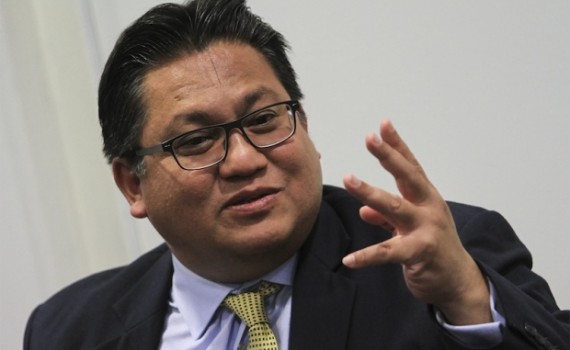PRESS STATEMENT
14-16 April 2014, Kuala Lumpur, Malaysia
We, the members of the Advisory Committee of the Asian Inter-Parliamentary Caucus on Labour Migration representing fifteen countries, met on 14-16 April in Kuala Lumpur for the 2nd Advisory Committee Meeting and Fact-Finding Mission to inquire on the situation of migrant workers in Malaysia.
We consulted the Members of Parliament, Migration Working Group, Migrant Care, Malaysian Trade Union Congress, trade unions, Bar Council Malaysia, the National Human Rights Commission of Malaysia (SUHAKAM), foreign missions and migrant leaders as part of our investigation.
We identified eighteen recommendations to promote and protect the rights of migrant workers in Malaysia which also includes the quality of life of migrant workers.
We call upon the Malaysian government to take immediate steps to implement three key recommendations below:
- MOUs signed between the sending countries and Malaysia should be transparent and made public. Stakeholders should be consulted in the formulation of MOUs. MOUs should stipulate minimum international labour standards, social protection and best practices in the management of migrant labour.
- Malaysia should move forward in concluding the draft ASEAN Framework Instrument on the Protection and Promotion of the Rights of Migrant Workers. The drafting of the Instrument is a product of Article 22 of the Cebu ASEAN Declaration on the promotion and protection of the Rights of Migrant Workers which was adopted in January 2007. The current draft should be made available to stakeholders.
- Malaysia should consider a government to government (G2G) approach in the recruitment of migrant workers Malaysia. This would minimize recruitment cost and exploitation of migrant workers by outsourcing companies and private recruitment agencies and labour brokers. A special government-led multi-sectoral evaluation task force should be established to analyze the impact of the current outsourcing and recruitment and management of migrant workers in the country.
We are seriously concerned with the management of migrant workers in Malaysia. Our investigation shows that migrant workers in Malaysia are highly vulnerable to exploitation and violence in an environment where their rights are not protected and promoted. In addition, migrant workers continue to face violation of labour rights including discriminatory wage practices, long hours of work, no weekly rest day, hazardous working conditions, physically and sexually abusive employers and deplorable living conditions.
Our findings indicate that migrant workers continue to live in poverty in Malaysia and in some instances worse off than they were before in their country of origin.
Existing laws are not adequately enforced to protect the rights of migrant workers. There is also lack of enforcement officers to monitor and carry out enforcement.
Migrant workers access to justice is curtailed by immigration policies. Migrant workers lose their work permit when they lodge a complaint against the employer and/or when they are fired. The migrant workers are then required to apply for a special pass at a monthly fee of MYR 100 issued at the discretion of the immigration officer. During this period, migrant workers are not allowed to work resulting in loss of income and incentive to pursue the case.
It appears that Malaysia’s present approach to the management of migrant workers victimizes the migrant worker and favours the business community and the economies of sending countries and Malaysia.
We call upon the Malaysian government to exercise strong political will in restructuring the management of migrant workers to create a win-win situation for all stakeholders.
Download a copy of the statement and the eighteen recommendations here
———————————————————
Asian Parliamentary Caucus on Labour Migration
The Asian Inter-Parliamentary Caucus on Labor Migration was formalized in 2011 in Phnom Penh, Cambodia, through a resolution of the assembled MPs that aimed to foster collaboration and encourage a pro?active role for parliamentarians in advancing the rights and welfare of migrant workers across Asia. Migrant Forum in Asia (MFA) was designated as the Secretariat that would act as the primary coordinating body for the Caucus. Since 2007, Migrant Forum in Asia (MFA) and network partners, have been facilitating a parliamentarians program aimed at identifying the role for parliamentarians on the issues of labor migration and migrants’ rights, enhancing participation of MPs in that role, and identifying key issue areas to take on. For more information on the caucus please check the website: http://asianparliamentarians.mfasia.org/
